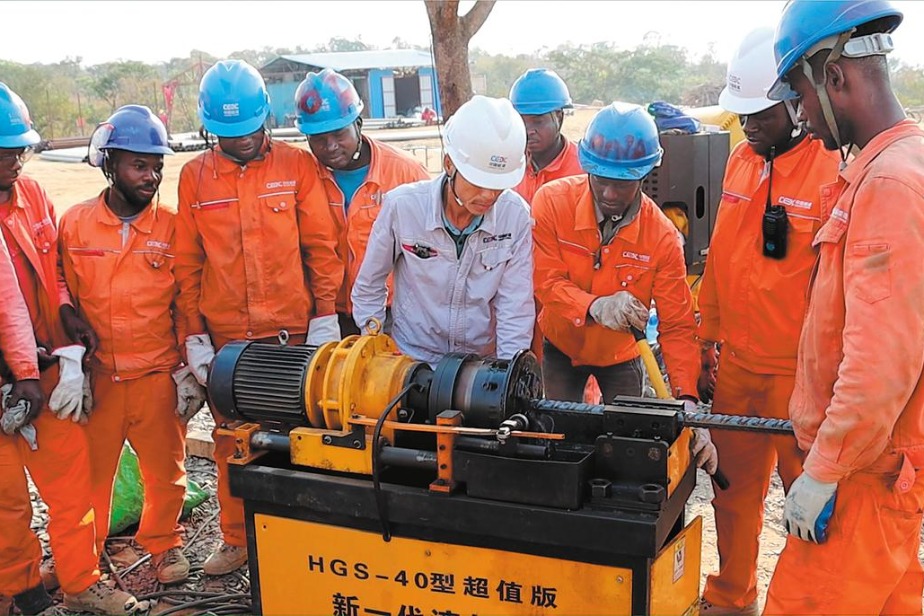More grads returning to hometowns to find work

An increasing number of Chinese college graduates are opting to return to their hometowns for employment, driven by government policies and a shift in attitudes toward job opportunities in rural and smaller urban areas, according to the 2024 China Undergraduate Employment Report.
The report, published by education consultancy MyCOS, revealed a growing proportion of graduates from central and western regions in China choosing to find jobs in the areas where they grew up.
In 2023, 87 percent of bachelor's graduates in Central China were employed locally, and 80 percent in the western region landed jobs in their home provinces, marking a rising trend as regional development initiatives and evolving job preferences continue to influence employment decisions.
The government has introduced policies to encourage university graduates to seek grassroots work in China's central and western regions, as well as remote areas, offering incentives such as tuition reimbursements or student loan repayments for undergraduate and vocational students, with a maximum amount of 12,000 yuan ($1,689) per person per year.
Additionally, graduates who complete their service in grassroots employment projects will be eligible for a 10-point bonus on the national postgraduate entrance exam within three years after their service, the Ministry of Education said in notice in 2022.
Local governments have also been ramping up efforts to encourage this shift. An alliance of college graduates in Liuyang, Hunan province, includes over 800 students from 237 universities nationwide and works to connect local talent with job opportunities.
The city has held a recruitment event for six consecutive years, attracting over 1,100 students to participate. More than 60 percent of them have chosen to return to Liuyang for career development. Of these, 59 percent found employment in enterprises and public institutions, 35 percent chose grassroots jobs and 6 percent started their own businesses.
Meanwhile, there has been an increase in the number of graduates choosing to work in county-level cities and rural areas, the report said.
According to MyCOS, 27 percent of bachelor's degree earners and 29 percent of vocational college graduates from the class of 2023 found employment in county-level regions, rising 6 and 7 percentage points, respectively, from 2019. The increase is particularly pronounced in central and western counties, it added.
As the number of graduates continues to rise annually, job openings in major cities have remained relatively stable amid intensifying competition. As a result, many are turning to smaller cities and counties where job hunting is less competitive, the report said.
Moreover, lower living costs and less financial pressure in these areas are attracting many graduates, particularly those who prioritize work-life balance and proximity to family.
The economic development of county-level regions has also contributed to the trend, as many younger employees are seeing opportunities closer to home.
County cities have become the main focus of big chains such as Starbucks and Luckin Coffee for opening up new outlets and increasing their growth prospects in the country.
County-level regions accounted for 46.3 percent of China's total retail sales of consumer goods, according to a report released in July from CCID Consulting about the high-quality development of the county-level economy.
One-third of the 895 cinemas that opened last year were in county regions, and coffee consumption in those areas grew 26 percent faster than in major cities, according to data from e-commerce platform JD.
Hu Dawu, a professor at the Southwest University of Political Science and Law, said finding jobs in second- and third-tier cities or counties has become more feasible as county economies integrate with surrounding metropolitan areas.
"This has provided more opportunities for associate degree holders, bachelor's graduates, and even some highly skilled postgraduates," Hu told news outlet ThePaper.cn.
In addition, parents of those born after 1995 may be able to offer them more support in terms of daily care and finances, making county-level employment a viable choice for many young workers, Hu said.
- Third Cyberspace Security Forum convenes in Tianjin
- China launches satellites from sea
- Hunan dragon and lion dance competition celebrates cultural vitality
- Guangdong launches nationwide recruitment drive to attract more top-tier talent
- Former UN official praises China's growth journey
- Chinese association's guidelines for cancer treatment promoted globally in 16 languages





































